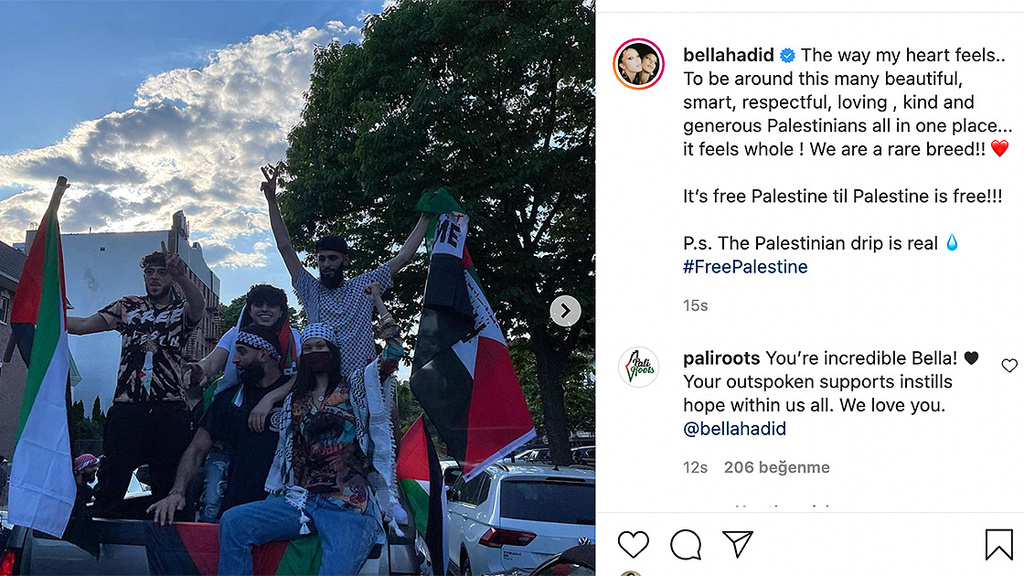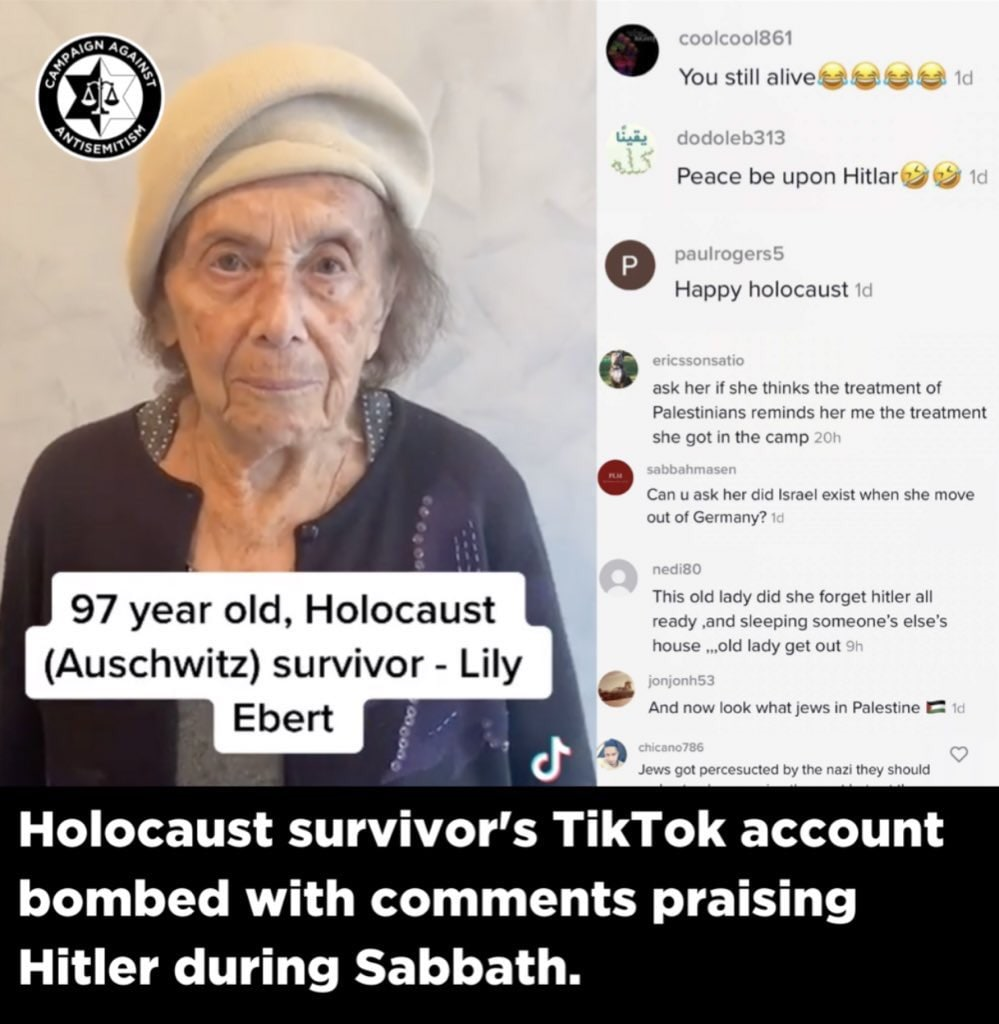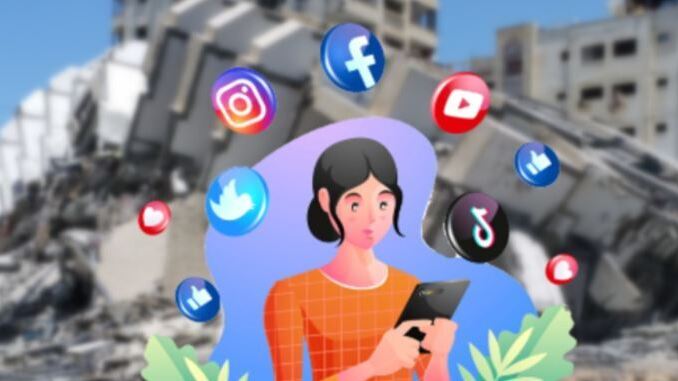Getting your Trinity Audio player ready...
As the ceasefire between Hamas and Israel went into effect last week, the virtual flames on social media platforms also began decreasing.
The latest violence highlighted the fact that social media has come to play an increasingly significant role in molding, often affixing, the way people view one of the world’s longest-standing conflicts.
For Palestinians, social media has become an instrumental tool in garnering international support after a period in which their cause has been sidelined.
For Israelis, the platforms are used in an attempt to disseminate a side of the story often not seen in mainstream media.
For both, it is a new arena for blowing off steam.
The eleven-day conflict that ended on May 21 was accompanied by a steady stream of social media posts on TikTok, Facebook, Instagram and Twitter created by both sides.
The prolific use of social media, especially TikTok and Instagram, has engaged a younger generation that is often accused of being indifferent to political developments around the world. Apps like WhatsApp and Telegram have been used to spread messages about upcoming demonstrations.
While social media is used as a tool to mobilize people on both sides, it landed on the fertile ground of a fragmented society within Israel and it highlighted the disparity between Israel and Hamas.
“Social media networks do not create tension out of nothing, they intensify a preexisting reality,” says Dr. Sharon Haleva-Amir of the school of communication at Bar-Ilan University.
“The platforms make it easier to reach people and make it easier to get organized."
But while the adversaries try to use the platforms to their advantage in order to sway public opinion and pressure leaders to intervene for either side, social media harbors certain risks.
From misinformation to the ability to quickly mobilize crowds for violent riots or mass boycotts, the power of social media cannot be underestimated. It has become a major player in world politics, with the Israeli-Palestinian conflict just one example, according to experts.
“It enables the players to get a message in a way that doesn’t rely on mainstream media and allows really good control over their messages,” says Nicholas John, an associate professor in the department of communication at the Hebrew University of Jerusalem.
3 View gallery


Model Bella Hadid posted images on Instagram from a pro-Palestinian rally
(Photo: Instagram )
According to Yiftah Curiel, director of the department for digital diplomacy in Israel’s Ministry of Foreign Affairs, the various social media accounts operated by official representatives have about ten million followers with a reach of 200 million users a month. During the escalation with Hamas in Gaza, these numbers significantly increased.
As the fighting persisted, each side countered the other side’s claims, be it by professional info-graphics or amateur videos that went viral.
Celebrities from around the world quickly weighed in on the contentious issue, most taking a pro-Palestinian view of the conflict.
“What was new here was celebrities speaking out, especially in the United States. They are able to use social media to express a stand on issues of the day in a way that can get the attention of millions of people,” says John.
This has proven to be a slippery slope. Preliminary data from the U.S.-based Anti-Defamation League shows a sharp rise in real-world and online anti-Semitic incidents since the fighting started.
In demonstrations against Israel around the world, Nazi imagery was used by some protestors. Several synagogues were vandalized, and Jewish- owned businesses also were targeted.
“The incitement against Israel that we saw in many cases is the engine behind at least part of the anti-Semitic incidents,” says Curiel.
For many young adult social media users, the recent violence between Hamas and Israel was the first major escalation they have witnessed.
The different platforms allowed them to be vocal participants, or “slacktivists,” spreading their opinions through the internet.
The louder and more graphic a post is, the more viral it gets and the greater its impact, regardless of whether the content is correct or not, according to some.
While both Palestinians and Israelis have tried to use the different platforms to garner support, the nature of social media means it may not be able to play such a mainstream role. The discourse seen online in the last couple of weeks has been seen as extreme and reflected polarization.
Meanwhile, the sophisticated algorithms that Facebook, TikTok, Twitter and Instagram employ guarantee the user sees almost exclusively only the kind of content they want to see.
“It doesn’t bring people to want to hear different opinions,” says Haleva-Amir.
“Everyone uses the platforms for their own needs, not to really deliberate or engage in dialogue," she says.
“The objective on both sides isn’t to change people’s minds but to reinforce the views of the people whose minds are already made up and to provide them with talking points and content that they can share among their own networks,” says John.
For Curiel and his department, social media gives the ability to increase Israel’s exposure.
“We are aiming to reach the large audience which doesn’t necessarily have an opinion on the issue and mostly consumes the news from social media. It’s important for us to be present there,” he says.
The corporations behind the platforms have often been hesitant to take action against users and accounts that incite or spread misinformation or extremist messages.
While many of the companies claim to want to defend freedom of speech, the algorithms that spread posts in such a targeted way are the ones that appear to guarantee their profits.
In the midst of the fighting, Justice Minister Benny Gantz asked Facebook and TikTok to remove inciteful content.
“These are measures that will … prevent the violence … intentionally stirred through social media by extremist elements that are seeking to do damage to our country. We are in a moment of social emergency, and we expect your assistance,” Gantz said, according a statement released by the Justice Ministry.
3 View gallery


A screenshot showing some of the abusive messages Holocaust survivor Lily Ebert received on her TikTok page
(Photo: Campaign Against Antisemitism)
“The social media platforms often hide behind the claim that they are only a channel, just a technology,” says Haleva-Amir.
“They don’t really care about free speech, rather about their profits."
But it’s a two-way street.
“It is a relationship,” says Haleva-Amir, “If politicians stop using platforms like Facebook or speak against Facebook give-and-take, Facebook can alter the algorithm and lower the exposure of their posts.”
These complexities are here to stay. As there is an increasing understanding that social media will continue to play an important part in international politics, especially in times of conflict, the players will have to tweak their use of this tool.
“The power of this tool is so intense that it cannot be ignored or characterized just as a facilitator. We have to treat social media as meaningful factor in the arena,” Haleva-Amir says.


